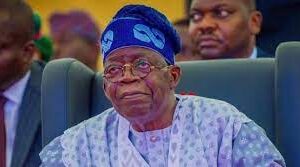Insecurity, corruption, women’s right and the rights of minorities took the centre-stage yesterday as delegates rounded off debate and comments on President Goodluck Jonathan’s inaugural speech at the Conference.
Also mentioned and debated was the call for the re-introduction of the on-shore and off-shore oil dichotomy which would deprived certain oil producing states of any revenue from oil exploration and exploitation carried out off-shore.
However, Nsongurua Udombana, a professor of international law from Akwa Ibom state, shot down the suggestion on the grounds that no international law as cited by the speakers could dictate to a country what to do within its locality.
He said instead, sections of the 1999 Constitution that vested authority on the central government with regard to the control of natural resources to the exclusion of the states where they were domesticated should be abrogated in the spirit of true federalism.
Udombana said the “problem of Nigeria is not lack of resources, but inability of the leaders to successfully harness these resources for the benefit of the people.”
Mrs. Ramatu Bala Usman, in her comments, said the Conference must ensure that the 35 per cent gender placement in public service and appointments in favour of women be enshrined in the Constitution “so as to give it a legal backing.”
In addition, she asked for institutionalisation of the roles of the spouse of the first citizen, either at the national or state level, whether man or woman, “so that if a woman becomes the president of governor, the husband will have a constitutional role to play and vice versa.”
Maria Waziri from Kebbi state also spoke glowingly about the oneness of Nigeria and why women education should be given a priority by government at all levels.
She said: “The oneness of this nation is absolutely beyond negotiation. I suggest strongly that we must not approach issues with suspicion. We must discuss freely in the overall national interest because Nigeria belongs to all of us.
“I stand for oneness, for togetherness and for a stronger indivisible Nigeria which is at peace with its citizens based on mutual respect and understanding amongst our diverse people, irrespective of tribe, ethnic or religion.”



